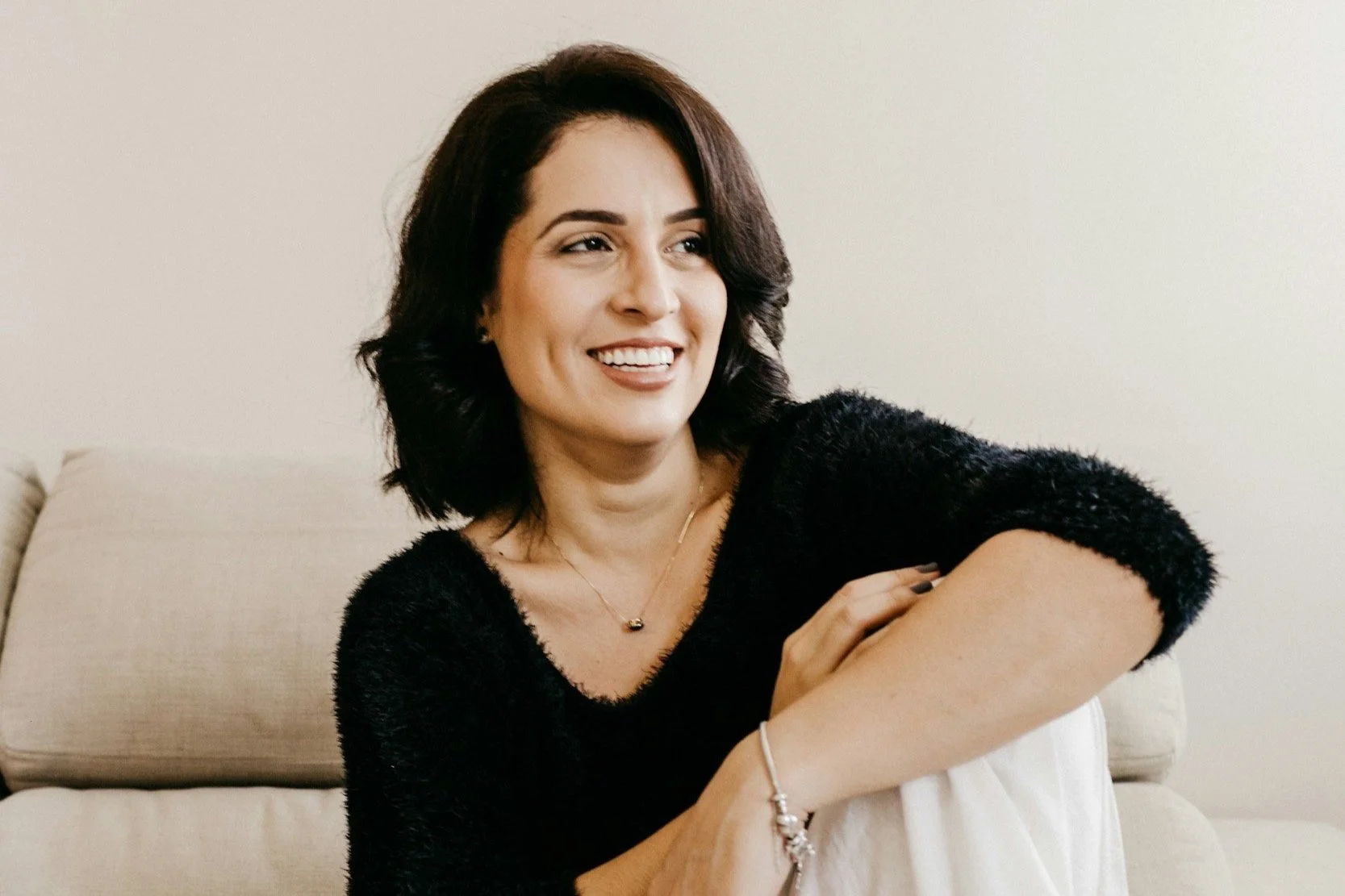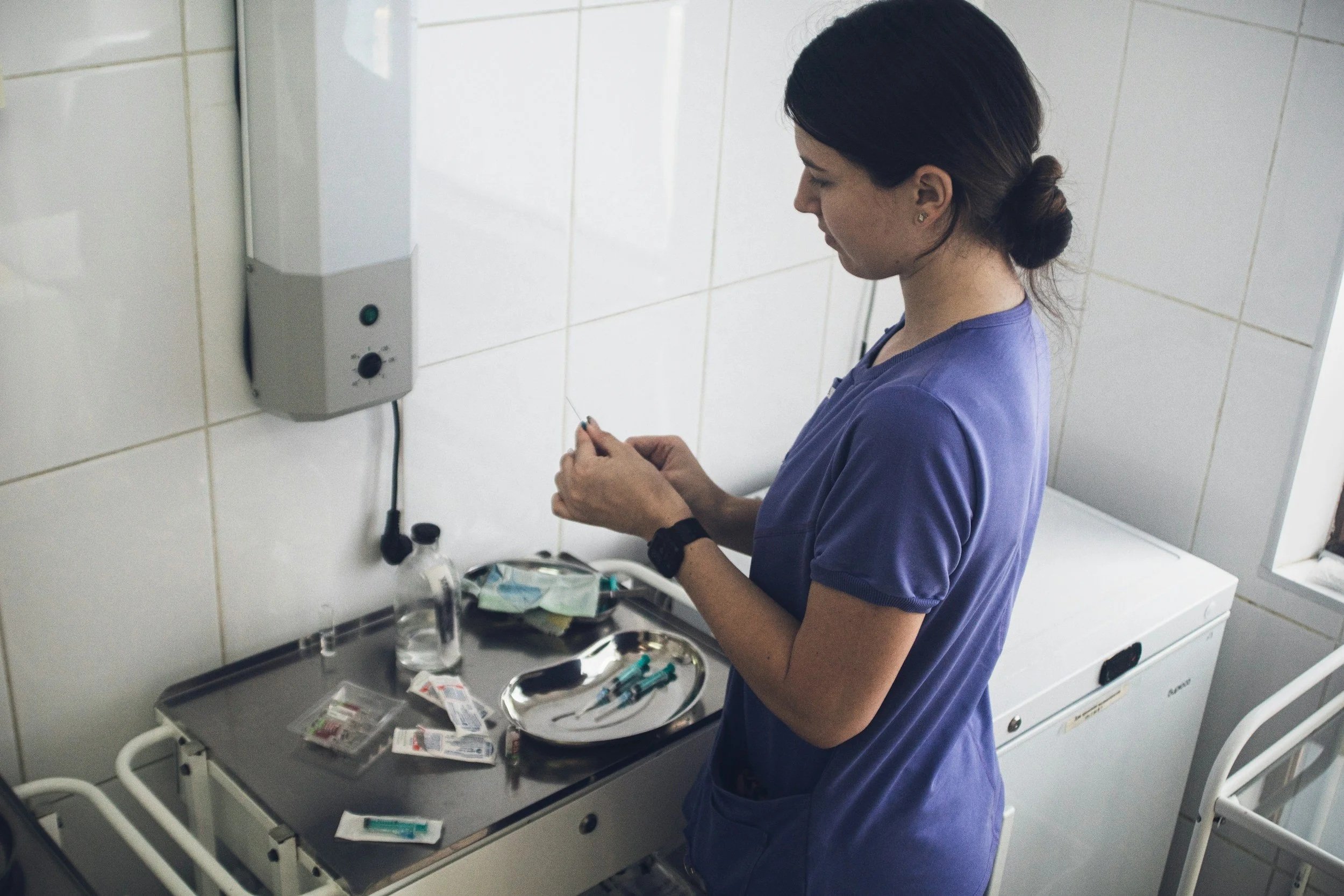When it comes to giving an estimate on the number of viable, “good-quality” eggs left in someone’s ovaries, there are two important elements: egg quantity and egg quality. We measure egg quantity with a blood test and ultrasound. For egg quality, there is no test, but our best estimate comes from the age at which a woman freezes her eggs.
Egg quantity: how many eggs are left?

Eggs after an egg freezing cycle - ready to be frozen! (Source: Northern California Fertility Medical Center)
Egg quantity testing is important for all women considering egg freezing. Since no single test is perfect, we recommend gathering as much information as possible by obtaining both (1) an AMH blood test and (2) an antral follicle count (done by ultrasound).
1. Anti-Mullerian Hormone (AMH) blood test – higher is better. An AMH level is one of the important blood tests for egg quantity. AMH is a hormone produced by cells that surround the eggs, called granulosa cells. The more eggs you have in your ovaries, the more AMH producing cells you have, which results in a higher level of AMH in your blood. Thus, an AMH test is used to check the potential number of eggs you have left in your ovaries and help predict how many eggs can be retrieved per attempt. Younger women with an AMH > 2 ng/mL may not necessarily need to rush into egg freezing. The AMH test is convenient because it can be done on any day of your menstrual cycle.
AMH > 2 ng/mL is Good
AMH = 1 – 2 ng/mL is OK
AMH = 0.3 – 1 ng/mL is Concerning (your biological clock is ticking fast)
AMH < 0.3 ng/mL is Poor and means there are very few eggs remaining (it may be too late)

A transvaginal ultrasound reveals your Antral Follice Count.
2. Antral Follicle Count (AFC) ultrasound – higher is better. We always include an AFC as part of the first visit evaluation because it is a crucial piece of information for any woman considering egg freezing. The doctor will perform a vaginal ultrasound (using a wand that is inserted into your vagina, as opposed to the type that is used over your belly) to count the number of antral, or primordial (“sleeping”) follicles in both ovaries. Each antral follicle represents a potential egg. A high count indicates a better chance of producing more eggs available for freezing. An antral follicle count can be done at any point in your menstrual cycle. An AFC over 20 is excellent. However, for women over 38, we will want at least 30 eggs total (due to lower egg quality with an increase in age), which means many women 38 years and older may need to do an egg freezing cycle more than once. (It’s extremely rare to get 30 eggs from one cycle.)
Egg quality: can those eggs make a healthy baby?
Unfortunately, at this point in time, there is no good way to test for egg quality. However, your body is pretty amazing. Although not perfect, your body has the ability to recognize when an egg is abnormal and will not produce a healthy baby, but this occurs after you decide to thaw and fertilize your eggs. Poor egg quality is often the result of chromosome or DNA abnormalities. If the egg has a defect, your body will usually recognize a problem and will either prevent fertilization/conception altogether, or if the abnormal egg fertilizes and does attach to the uterus your body will trigger a miscarriage. This is why, while the rate of babies born with birth defects does go up for older women – the result of poor egg quality – babies born with birth defects are still very uncommon. There are actually tests for embryo quality (after the sperm fertilizes the egg) with a test called Preimplantation Genetic Testing (PGT).
Egg Quality
However, since most egg freezers don’t want to make embryos yet with their eggs, it’s not possible to test for egg quality at the time a woman is freezing. Our best guess at egg quality is actually based on the age of the woman at the time she froze her eggs, and it isn’t influenced by your other fertility testing (like your AMH or AFC). This is why most doctors recommend that the older a woman gets, the more eggs she will need to freeze in order to make a healthy baby.

Dr. Michael Murray is double board certified in Reproductive Endocrinology/Infertility and OB/GYN. He has received nearly $1M in scientific funding and has earned awards for his research from both the American College of Obstetricians and Gynecologists and the American Society of Reproductive Medicine. For more than 20 years he has enjoyed helping patients reach their family goals.
Learn more about Northern California Fertility Medical Center (NCFMC) on Freeze.
Answered by Dr. Roy Handelsman from HRC Fertility. Understand how ovarian cysts and ovarian surgery may impact the egg freezing process.
Answered by Dr. Rashmi Kudesia from CCRM Fertility Houston. Here’s a checklist for before, during, and after your egg freezing consultation, including 11 questions you should ask the doctor.
Answered by Valerie Shafran, MSN, FNP-C from Extend Fertility. Discover why fertility experts urge women to stop taking GLP-1 agonists before an egg freezing cycle.
Answered by Dr. Nidhee Sachdev from South Coast Fertility Specialists. Explore what AMH tells us about a woman’s ovarian reserve or how many eggs she has left.
Answered by Dr. Hade from Generation Next Fertility. Understand how egg freezing does not cause long-term weight gain yet there is a chance of transient bloating.
Answered by Rijon Charne, JD from Sunray Fertility. Explore what a reproductive estate plan entails and the situations where having one can make a big difference.
Answered by Rijon Charne, JD from Sunray Fertility. Learn more about the importance of clinic disposition forms, including what they do and don’t cover.
Answered by Rijon Charne, JD from Sunray Fertility. Discover the legal nuances that can shape your options when freezing eggs or embryos.
Answered by Dr. Joshua Klein from Extend Fertility. Learn how birth control relates to egg freezing and if you will need to stop your hormonal birth control before starting the procedure.
Answered by Dr. Jesse Hade from Generation Next Fertility. Discover the important factors that affect chances of egg freezing success in your late thirties.
Answered by Sidonia Buchtova, PA-C, C-RHI from Refresh Psychiatry. Understand if you can stay on an SSRI or SNRI when freezing your eggs.
Answered by Sidonia Buchtova, PA-C, C-RHI from Refresh Psychiatry. Discover tips to help support your mental well-being during preparation, throughout the cycle, and after your egg retrieval, especially if you have a history of anxiety.
Answered by Dr. Katharina Spies from Vida Fertility. Learn about who should consider supplements before and during fertility preservation, and how supplements could support your egg freezing cycle.
Answered by Dr. Serin Seckin from Generation Next Fertility. Understand the key differences to help you make an informed decision that aligns with your personal and reproductive goals.
Answered by Dr. Ido Feferkorn from the Reproductive Medicine Group. Learn how Polycystic Ovarian Syndrome (PCOS) may affect the egg freezing process and outcomes of fertility preservation.
Answered by Dr. Meera Shah from Nova IVF. Understand the potential risks of egg freezing to help you evaluate if it is right for you.
Answered by Dr. Hade from Generation Next Fertility. Learn from start to finish the entire process of what happens on the final day of an egg freezing cycle.
Answered by Dr. Sahar M. Stephens from Northern California Fertility Medical Center. Understand the probability of pregnancy based on the number of eggs frozen and the age at which you freeze.
Answered by Dr. Alison Peck from HRC Fertility. Discover which medications are commonly used for ovarian stimulation during an egg freezing cycle.
Answered by Dr. Kathryn Snow from Piedmont Reproductive Endocrinology Group (PREG). Understand the side effects that you may experience when freezing your eggs.
Answered by Lia Schiller, MSN, AGNP-BC from Extend Fertility. Learn why IUDs can stay in place throughout the egg freezing process.
Answered by Dr. Woo from HRC Fertility. Learn how some medications need to be stopped for an egg freezing cycle while some medications can be continued.
Answered by Dr. Dan Nayot from The Fertility Partners. Learn how artificial intelligence is providing women with more information than ever before about their eggs.
Answered by Dr. Joshua Klein from Extend Fertility. Egg freezing doesn’t impact your chance of getting pregnant naturally, because egg freezing makes use of eggs that would otherwise have been lost.
Answered by Dr. Dan Nayot from The Fertility Partners. Understand the distinction between egg quantity and quality, and explore how AI is transforming egg quality analysis.
Answered by Dr. David E. Tourgeman from HRC Fertility. Understand what options exist for what to do with your frozen eggs if you decide not to use them for IVF.
Answered by Dr. Armando Hernandez-Rey from Conceptions Florida. Learn about minimal stimulation egg freezing cycles and how they can decrease the risk of ovarian hyperstimulation syndrome.
Answered by Dr. Ido Feferkorn from the Reproductive Medicine Group. Find out how egg freezing medications work and how protocols can be adjusted if you can’t take estrogen.
Answered by Dr. Ido Feferkorn from Reproductive Medicine Group. Learn how egg freezing fits into the menstrual cycle and how timing can be customized.
Answered by Dr. Elena Santiago from Vida Fertility. Understand the ins and outs of egg freezing in Spain as a non-resident, including timing, costs, and more.































